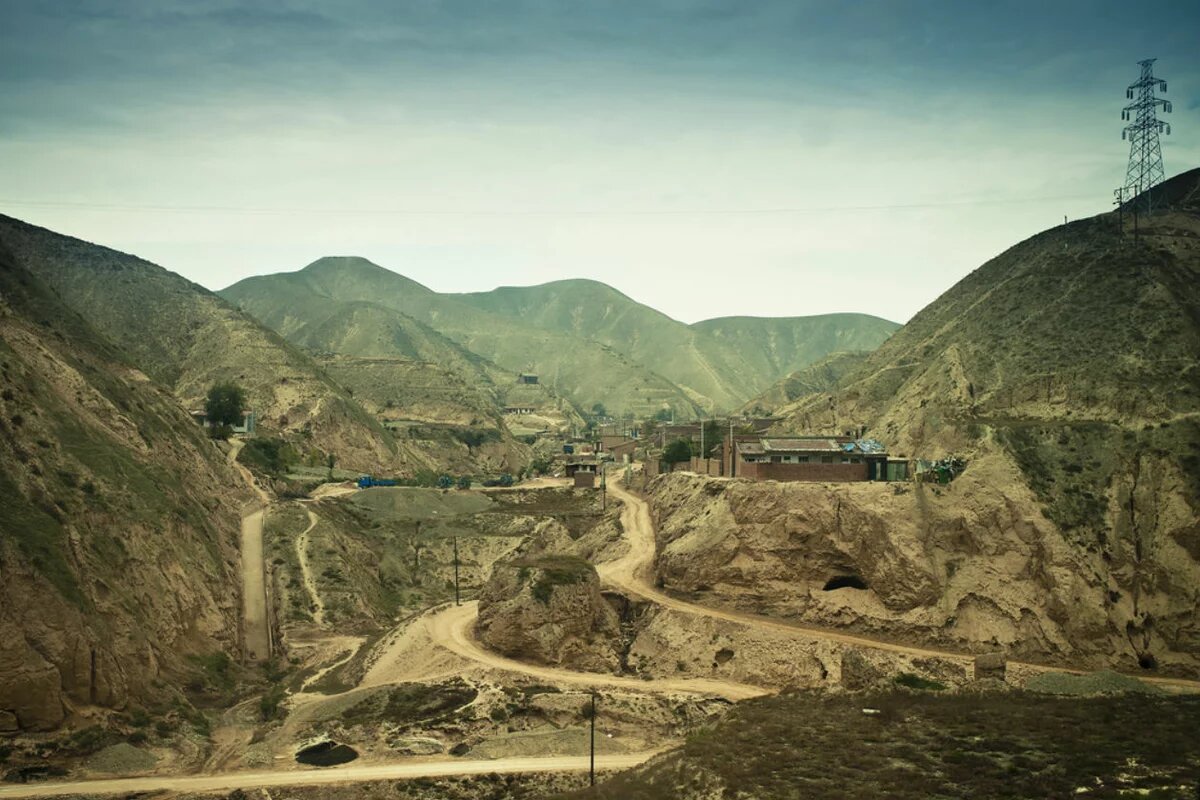
Introduction
In the HBS Future Workshop on Resources in Southeast Asia and China, some participants identified the topic of "extractive industry" (EI), and later narrowed it down to issues such as lack of transparency, corruption, and the effectiveness of the Extractive Industries Transparency Initiative (EITI) in this region.
I partook in some panel discussions on this topic and briefly shared my observation of the practice of China's extractive companies. This article will explore why and how Chinese companies from extractive industries should improve transparency and compliance by issuing corporate compliance anti-corruption reports.
What's the Extractive Industries Transparency Initiative?
The Extractive Industries Transparency Initiative (EITI) is a global standard ensuring transparency and better governance of natural resources. EITI promotes revenue transparency and accountability in the extractive sector. It has a robust yet flexible methodology for monitoring and reconciling company payments and government revenues from oil, gas and mining at the country level. Each implementing country creates its own EITI process adapted to the specific needs of the country. The EITI standard establishes the methodology countries need to follow to become EITI compliant.
EITI implementation has two core components, the first of which is transparency: Oil, gas and mining companies disclose their payments to the government, and the government discloses its receipts. The figures are reconciled and published in annual EITI Reports alongside contextual information about extractive sector. The second core component is accountability: A multi-stakeholder group with representatives from the government, companies and civil society is established to oversee the process and communicate the findings of the EITI Report. [1]
Overview of China's Extractive Industry's: Overseas Investment and Challenges
China's extractive industry comprises large state-owned companies and privately-owned companies, and these companies are nowadays making investments on nearly every continent and some subsidiaries are listed abroad, including the New York Stock Exchange. This makes it a necessity for these companies to comply with applicable laws and regulations, for instance, the U.S. Foreign Corrupt Practices Act (FCPA) and the Dodd-Frank Act.
Specifically speaking, China's upstream exploration and production oil industry is dominated by the three largest state-owned companies: The China Petrochemical Corp. (Sinopec Group), China National Petroleum Corporation (CNPC) and China National Offshore Oil Corporation (CNOOC) which rank at 4th, 5th and 93th respectively on the Global Fortune 500 listing in 2013. China's extractive industry started to make overseas investment in 1990s, and its overseas direct investment stock is 44,7 billion dollars till the end of 2010, which accounted for 14,1 percent of China's total overseas direct investment and just ranked after the industries of commercial service and banking.
Though the initial investment of China's extractive industry is welcome by resources-rich developing countries, many companies are currently trapped with increasingly serious conflicts and scandals, chiefly arising from China's companies' non-compliance with local laws and negligence of transparency as well as the requirement of local communities. For instance, many private Chinese mining and metals companies pulled out overnight from the Democratic Republic of Congo, leaving wages unpaid and local governor declaring that they would not be welcome back.[2]
It’s also reported that in March 2006, the CEO of China National Aviation Fuel (Singapore) was sentenced to jail for 51 months and fined 330,000 Singapore dollars by the Singapore court due to illegal operation. The CEO was charged with fake performance release, violation of duties as a board chairman of a listed company, not disclosing colossal losses to the bourse, deceiving the German bank, and doing internal transaction.
Recently, overseas investment of China's extractive industry are confronted with soaring risks and their employees are often targeted as hostages in local armed political conflicts, which has so far resulted in suspension of projects and big financial loss. For instance, the Myitsone dam project in Myanmar was stopped in September 2011, and the China National Petroleum Corp. is currently making a holistic risk assessment of the project of China-Myanmar oil and gas pipelines in order for it to take preventive measures to mitigate potential risks at early stage.
Given these challenges facing China's extractive companies' overseas investment, in addition to better understanding local conditions, China’s companies should first strengthen corporate transparency and compliance to put themselves in an advantageous position and obtain trust and support from affected local communities.
Strengthen Corporate Transparency and Compliance through Issuing Compliance Anti-corruption Reports
According to our discussions in the workshop, we believed disclosure of corporate payment to the government is essential to ensure transparency and to achieve good governance of natural resources, but some of our concerns remain unsolved such as: how to convince extractive companies of the importance of transparency and effectively supervise their information disclosure, and whether payment disclosure is sufficient for ensuring transparency and compliance of the whole extractive sector.
China has not yet become a country supporting EITI, but Chinese governments and extractive companies have already made efforts towards making sustainable domestic and overseas investments. The State-owned Assets Supervision and Administration Commission of the State Council issued "Guideline on State-owned enterprises (SOE)'s Fulfillment of Corporate Social Responsibility (CSR)" in late 2007 and asked SOEs, including big extractive companies, to issue CSR reports to disclose information relating to their social responsibilities to stakeholders and the public in general, and receive their supervision. Nowadays, almost all big state-owned extractive companies in China have issued CSR or sustainability reports, which however just focus on corporate activities relating to social responsibilities instead of its payment transparency and compliance, which are of great concerns to participants of the workshop and closely affect the benefits of overseas investment of China’s extractive companies as well as the recipient communities.
On April 9, 2012, the opinions about the Construction of Corporate Culture of Overseas Chinese Enterprises were issued jointly by the Ministry of Commerce, the Central Publication Office, the Ministry of Foreign Affairs, the National Development and Reform Commission, the State-owned Assets Supervision and Administration Commission of the State Council, the National Bureau of Corruption Prevention, and the All-China Federation of Industry & Commerce. The document demands that China's companies should comply with the laws and regulations of the countries and regions where they operate, to strictly fulfill the contract, pay taxes, protect the legal rights of laborers, and combat commercial bribery. And they shouldn't pay briberies to local public officers, world organization officers or related enterprise staff.
The United Nations Global Compact (UNGC) has actively encouraged companies to combat corruption and release compliance reports, and it jointly put forward a framework of compliance anti-corruption report together with Transparency International in 2009. Meanwhile, UNGC undertook a web-based survey of compliance and anti-corruption reports of 2007 Fortune 500 companies, according to which, only 8 out of the 26 Chinese enterprises disclosed compliance and anti-corruption information in their released reports.
Considering the tone from the top (central government) and the gap with international best practices, China's extractive companies can demonstrate their commitment to transparency and combating corruption by joining the supporters of EITI and disclosing information of corporate payment to governments, which is an important source of commercial bribery and corruption. Payment disclosure is however far from enough to ensure the transparency and compliance of overseas investment of China's extractive sector, in parallel with their existing CSR reports, we believe China's extractive companies should issue separate compliance anti-corruption reports to disclose their activities ranging from prevention, detection to punishment of illegal payments and noncompliance.
Conclusion
From my own perspective, corporate transparency and compliance is a common cause involving companies themselves, governments, and other stakeholders, and joint efforts are necessary for pushing forward good governance of natural resources. Except for corporate voluntary information disclosure through releasing compliance anti-corruption reports, the governments should play a more active role in encouraging corporate transparency and compliance by endorsing internationally accepted standards and creating a leveling playing ground for all market participants. For instance, the China Securities Regulatory Commission can ask all listed extractive companies to disclose payments to governments and issue annual compliance anti-corruption reports.
References
1. Laurance WF. The perils of payoff: "Corruption as a threat to global biodiversity", Trends in Ecology & Evolution, 2004; 19(8): 399-401
2. Da Cunha Leite C, Weidmann J.: "Does mother nature corrupt? Natural resources, corruption, and economic growth", Natural Resources, Corruption, and Economic Growth, June 1999; IMF Working Paper, 2001 (99/85)
3. Kolstad I, Wiig A.: "Is Transparency the key to reducing corruption in resource-rich countries?", World Dev, 2009; 37(3): 521-532
4. Aaronson SA.: "Limited Partnership: Business, government, civil society, and the public in the Extractive Industries Transparency Iinitiative (EITI)", Public Administration and Development, 2011; 31(1): 50-63
5. Collier P.: "Implications of changed international conditions for EITI", Oslo, Norway: EITI International Secretariat (Board Paper 6–8), 2008
6. Coxhead I.: "A new resource curse? Impacts of China's boom on comparative advantage and resource dependence in Southeast Asia", World Dev. 2007; 35(7): 1099-1119
7. Mouan LC.: "Exploring the potential benefits of asian participation in the extractive industries transparency initiative: The case of China"; Business Strategy and the Environment, 2010; 19(6): 367-376
8. Steidlmeier P.: "Gift giving, bribery and corruption: Ethical management of business relationships in China", J Bus Ethics, 1999; 20(2): 121-132
9. Shankleman J.: "Going Global: Chinese oil and mining companies and the governance of resource wealth", Woodrow Wilson International Center for Scholars; 2009
10. Wu K.: "China's overseas oil and gas investment: Motivations, strategies, and global impact", 2008
11. Laurance WF.: "The perils of payoff: Corruption as a threat to global biodiversity", Trends in Ecology & Evolution, 2004; 19(8): 399-401
12. Kolstad I, Søreide T.: "Corruption in natural resource management: Implications for policy makers", Resource Policy, 2009; 34(4): 214-226
[2] Wu K.: "China's overseas oil and gas investment: Motivations, strategies, and global impact", 2008
